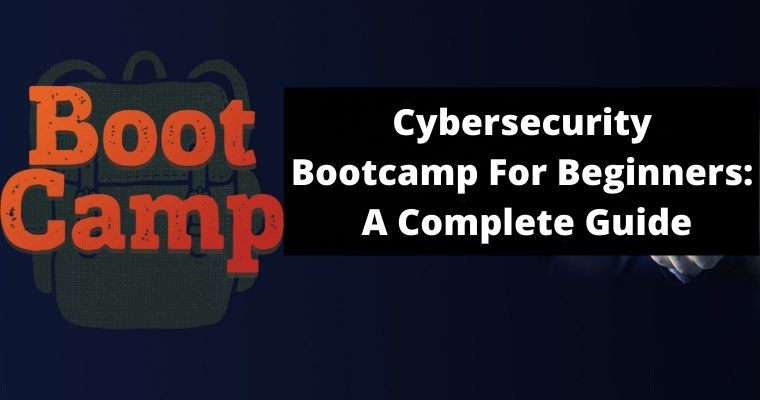A doctorate in information assurance from the University of California, often known as information security, is a computer science degree that focuses on safeguarding digital data against human mistakes, malfunction, and hostile assaults.
A doctorate in information assurance, often known as information security, is a computer science degree that focuses on safeguarding digital data against human mistakes, malfunction, and criminal assaults.
This curriculum is available in computer science, engineering, and even Internet technology (IT) universities.
The authenticity, integrity, availability, non-repudiation, and secrecy of digital information are the general aims of information assurance.
Cryptography, network security, computer forensics, data security, and software security are just a few of the skills you’ll acquire.
You’ll also learn to use response, protection, and detection capabilities to restore compromised systems.
Table of Contents
Why You Should Get Your Ph.D. from the University of California
Our Ph.D. program at the University of California in GGCS equips you to work on complicated, long-term research projects. In four to five years, you should expect to graduate and embark on an extensive research project that will culminate in a dissertation.
Our Ph.D. graduates work in the industry or become postdoctoral researchers or associate professors in academia.
The University of California, Davis is a learning and teaching institution dedicated to meeting societal requirements. The Department of Computer Science supports the university’s purpose in three ways.
First, its undergraduate and graduate education programs aim to teach students the fundamental principles of computer science and the skills required to solve modern society’s complex technological problems.
The breadth of course work provides a foundation for life-long learning and appreciation of multidisciplinary activities.
Second, the department contributes to the growth and improvement of computer science, software, and information technology via its research programs, delivering novel, creative solutions for societal issues.
Finally, the department disseminates its research to improve relationships with the public sector, advance multidisciplinary interests that benefit society, and educate the public via publications, public service, and professional activities.
Fellowships, Teaching Assistantships (TA), and Graduate Student Research (GSR) jobs are also available for graduate study.
A 50 percent TA job for the first three quarters and a 50 percent TA or 45 percent GSR role for the balance of a student’s academic career is the conventional type of Ph.D. graduate student assistance.
The department’s quantity and kind of help can vary from year to year, based on the number of TA and GSR posts available, the fellowships that the department is permitted to give, and the number of students who seek financial aid.
All qualifying students are highly encouraged to apply for one of the numerous external fellowships offered by government and commercial organizations.
Admission Requirements
You must complete the Graduate Studies online application and submit the application cost before the deadline to be considered for admission.
A bachelor’s degree, three letters of reference, a completed application form with official transcripts, GRE scores, TOEFL scores or IELTscores (if applicable), a statement of purpose, and a personal history statement are all required for admission.
Students having one or more shortcomings in the undergraduate proficiency standards may be accepted. By completing their Ph.D. program at the University of California, the student should have completed the undergraduate proficiency criteria.
This deadline may be extended with the Graduate Group’s Graduate Advisors Committee’s consent.
In addition to the entrance criteria mentioned above, students must exhibit undergraduate competency in four critical areas of computer science and mathematics.
The specified UC Davis courses exemplify the material:
- Computer Architecture — ECS 154A (Computer Architecture)
- Operating Systems — ECS 150 (Operating Systems and System Programming)
- Programming Languages –ECS 140A (Programming Languages)
- Theoretical Foundations –ECS 120 (Theory of Computation) and ECS 122A (Algorithm Design and Analysis)
- Mathematical Foundations — ECS 132 (Probability and Statistical Modeling for Computer Science) or MAT 135A (Probability) or STA 131A (Introduction to Probability Theory), and one additional upper-division mathematics course.
These are referred to as the undergraduate proficiency requirements.
Special Requirements
According to the group, all Ph.D. applicants must have a quarter of college-level teaching experience. This should involve speaking or conducting a discussion portion.
Each student must also attend an exit seminar when their research is presented to the University of California Davis academic community.
The dissertation committee will run this seminar, which will occur after all committee members have accepted the dissertation but before it is submitted to the Office of Graduate Studies.
Classes and Curriculum
At least ten graduate courses, excluding seminar (290, 290C, 298) and research (299) units, are needed. This might contain all courses completed in the Master’s degree if relevant.
All coursework used to meet degree requirements must get an A- or higher in the four core areas and a B or better in all coursework required to satisfy degree requirements.
The student develops the study curriculum in collaboration with the faculty/dissertation adviser, and graduate student service counselors can provide you with the form.
This comprises a primary and minor topic of study for a Ph.D. student. At least thirty units of coursework in a continuous program in a research field of computer science must be included in the major area (six of the thirty units originate from 299).
There must be at least fifteen units of coursework in the minor subject, including at least three graduate courses, and no 299 units.
No course with a grade lower than a B will be accepted into the program. The student must next submit the completed form to the graduate student service counselors for approval by the Educational Policy Committee.
Below is a typical timeline:
Year 1
♦ Fall — ECS 201A; ECS 235A; ECS 299
♦ Winter — ECS 222A; ECS 259; ECS 299
♦ Spring — ECS 251; ECS 252; ECS 299
Year 2
♦ Fall — Program of Study submitted and approved; ECS 256; ECS 289F; ECS 299
♦ Winter — Advanced Proficiency Requirements completed; ECS 240; ECS 244; ECS 299
♦ Spring — Application for Qualifying Examination; ECS 299
Year 3
♦ Fall — Qualifying Examination; Advancement to Ph.D. Candidacy
Years 4 – 6
♦ ECS 299; Dissertation Research Completion; Exit Seminar Completion
Career Options for Post-Ph.D. in Computer Science – Information Assurance Focus
Ph.D. graduates in this field can have careers in consulting firms, technology companies, financial organizations, etc.
Ph.D. graduates can be senior information managers and hold positions such as:
- Chief information officer.
- Chief technology officer.
- Director of systems development.
- Director of information technology operations.
Computer and information systems managers are in charge of creating and administering computer systems, which are used to manage an organization’s IT operations.
They organize software installations, develop security procedures, and search for methods to increase the efficiency of the IT infrastructure.
The cybersecurity and information assurance skills taught in an online doctorate program extensively rely on a systems manager’s day-to-day tasks.
Therefore, graduates from these programs who have many years of relevant experience are uniquely equipped to assume these posts.




